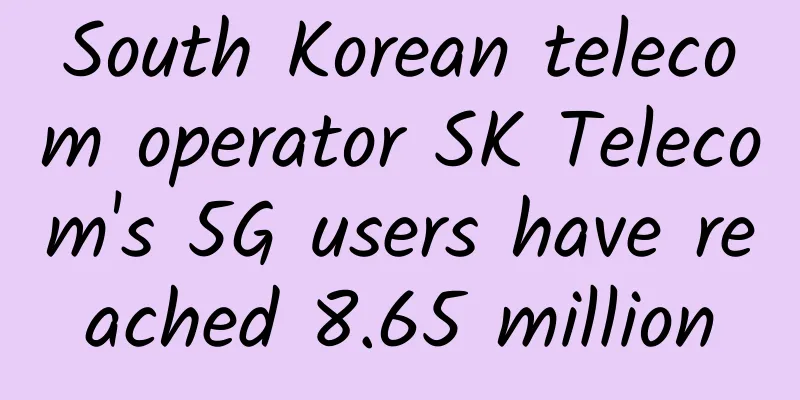IPv6 large-scale deployment is ready to go, and the Internet of Things may become a "killer application"

|
With the exhaustion of IPv4 address resources and the increasing requirements for network security in new industries such as the Internet of Things, the deployment of IPv6 is entering the "fast lane". In the past five years, global support for IPv6 has increased from 1% in 2012 to 22% at the end of last year; governments of various countries have introduced national strategies for large-scale deployment of IPv6, and the IPv6 penetration rate of pioneers such as the United States, Germany, Belgium, India, and Japan has exceeded 20%. As the country with the largest number of Internet users, China's IPv6 user penetration rate is only 0.38%, ranking 67th. The replacement of private addresses and hesitation in the technical path are important reasons why China lags behind. However, the Chinese government has recently made a strategic choice to abandon unnecessary debate and wait-and-see, and promote the largest-scale deployment of IPv6 with unprecedented strength. With the expansion of network address capacity and security upgrades, IPv6 will make it possible to connect massive amounts of things. The Internet of Things is expected to become the "killer application" of IPv6, and the latter is expected to provide the necessary technical foundation for emerging industries such as the emerging industrial Internet and smart cities. Global competition for next-generation Internet On January 19, at a media meeting held by the Global IPv6 Forum in Beijing, Latif Ladid, Chairman of the Global IPv6 Forum, and Liu Dong, Director of the National Engineering Center for Next Generation Internet, signed a strategic cooperation agreement. The two parties will carry out comprehensive cooperation in building a global IPv6 monitoring platform and other aspects to promote the accelerated deployment of IPv6. 21st Century Business Herald learned at the meeting that IPv6 is currently experiencing a round of rapid growth: in the past five years, global IPv6 support has increased from 1% in 2012 to more than 22% at the end of last year. The latest statistics show that the deployment rate of IPv6 in the United States, Germany, Belgium, France, Switzerland and Japan has exceeded 40%. The "2017 IPv6 Support Report" (hereinafter referred to as the "Report") provided by the Global IPv6 Testing Center of the National Engineering Center for Next Generation Internet points out that industrial deployments such as the Internet of Things, big data, and artificial intelligence have a strong rigid demand for IP addresses, but the number of IPv4 addresses can no longer meet the demand. According to Gartner, by 2020, there will be more than 26 billion IoT devices connected to the Internet. However, IPv4 only has 4.3 billion IP addresses, and by 2020, the IPv4 address space can accommodate less than 20% of the expected number of connected devices. IPv6 expands the current 32-bit length of IPv4 to 128 bits, and its maximum number of addresses exceeds 340 trillion, which means that even a grain of sand on the earth can be assigned an IP address. Latif Ladid said at the conference that the Internet of Things will be a "killer application" of IPv6. He said that the Internet of Things will bring access to a large number of devices, and in the early stages of the development of the Internet of Things, small companies are generally the main players. Such companies are vulnerable to network attacks. The attack on the Internet of Things camera on the East Coast of the United States last year is a case in point. While solving the problem of address shortage, IPv6 has proposed a number of improvements in network security and other aspects. The report introduced that as of October 2017, among the top 20 countries in the world in terms of IPv6 user penetration rate, 9 were EU member states and 6 were in the top 10. Among them, the IPv6 penetration rate in Belgium has reached 57%. Another country that has attracted attention is India. According to APNI Clabs statistics, the number of IPv6 users in India has exceeded 200 million, while the total number of Internet users is only 467 million. IPv6 users account for 45%, ranking first in the world. Many industry insiders told 21st Century Business Herald that China's IPv6 "got up early but arrived late." The data in the above-mentioned report show that as of November 2017, the top ten countries in terms of the number of IPv6 users in the world are India, the United States, Germany, Japan, Brazil, the United Kingdom, France, Canada, Belgium and Vietnam. As the country with the largest population and the largest number of Internet users, China has only 2.79 million IPv6 users, ranking 13th. In China, websites and business systems that support IPv6 are mainly distributed in campus networks and personal websites. The IPv6 support rate of Alexa's top 50 websites in the world is 42%; in contrast, the vast majority of Chinese websites are not connected to IPv6, and among the top 50 websites, only Tencent has a stable IPv6 access address. Lu Feng, deputy director of the Internet Research Institute of CCID Research Institute of the Ministry of Industry and Information Technology, told 21st Century Business Herald that one of the important reasons why China has been slow to promote IPv6 is that there are corresponding alternative technologies to solve the problems faced by China. China has always used private IP address conversion to deal with the problem of insufficient IPv4 addresses, and even formed a trap of dependence on private IP addresses. The so-called private IP address is similar to the extension number of a landline phone, which solves the problem of insufficient live broadcast numbers by setting extension numbers. Another reason is the hesitation on other technical solutions. Wu Hequan, chairman of the Internet Society of China, recently said that some solutions that isolate China's public Internet from the international Internet claim to be "independently innovative, safe and controllable", which confuses some units and violates China's insistence on a global Internet. In addition, some people think that the future network that subverts IP will be realized soon, so they are in a wait-and-see state, which affects the deployment of IPv6. China's acceleration will change the world IPv6 Landscape Liu Dong told 21st Century Business Herald that when China was deploying the next generation of the Internet, it had to choose between IPv6, IPv9, and future networks. Among them, IPv9 uses another system and requires rebuilding an ecosystem, while IPv6 continues the IPv4 ecosystem, with a simpler transition and is conducive to the smooth migration of IPv4 to IPv6. However, the future network is difficult to achieve in the short term. "Now, China has made a strategic choice and has made up its mind to avoid unnecessary discussions. The IPv6 document released at the end of last year explains everything. The most important thing about this document is that it requires us to stop waiting and form a joint force," said Liu Dong. At the end of November last year, the General Office of the CPC Central Committee and the General Office of the State Council jointly issued the "Action Plan for Promoting Large-Scale Deployment of Internet Protocol Version 6 (IPv6)" (hereinafter referred to as the "Plan"), calling for the acceleration of large-scale deployment of IPv6 next-generation Internet. Liu Dong introduced that this is the first time that an industry document has been jointly issued by the two offices. It is also the first industry document after the 19th National Congress of the Communist Party of China, which shows the importance and urgency of promoting IPv6. The plan proposes that by the end of 2018, the number of active IPv6 users will reach 200 million, accounting for no less than 20% of Internet users; by the end of 2020, the number of active IPv6 users will exceed 500 million, accounting for more than 50% of Internet users, and new network addresses will no longer use private IPv4 addresses. By the end of 2025, China's IPv6 network scale, user scale and traffic scale will rank first in the world. The network, applications and terminals will fully support IPv6, and the smooth evolution and upgrade to the next-generation Internet will be fully completed, forming a world-leading next-generation Internet technology industry system. In fact, for China, the contradiction of insufficient IP addresses is particularly prominent. On the one hand, this shows that China is at a disadvantage in the allocation of international IP address resources, with less than half an IP address per capita, while the United States has more than 5 addresses per capita. On the other hand, in recent years, with the continuous advancement of "Internet +", emerging businesses such as industrial Internet, Internet of Things, and smart cities have developed rapidly, and a huge number of terminal devices will be connected to the Internet. The demand for IP addresses is unprecedentedly strong, and the deployment of IPv6 has become increasingly urgent. It is foreseeable that the deployment of IPv6 will be significantly accelerated starting this year. Latif Ladid said that the document issued by China is the first in history to promote IPv6 on the largest scale and with the greatest force. "This is a very good action. The problem in Europe is that the government does not have sufficient funds to promote it, but China is different. China has more resources to ensure the promotion of this action, and there is also a very strict timetable." Latif Ladid pointed out that China is expected to rise rapidly in IPv6, which will change the entire IPv6 market structure. "Now India ranks first in the world in terms of the number of IPv6 users, but China has a larger population base and Internet users. With the rapid deployment of IPv6, China has the opportunity to catch up quickly, which will also promote the further acceleration of global IPv6." |
<<: The Importance of Layered Security in Edge Computing
>>: Gossip about the upcoming 5G era: the three-player pattern
Recommend
my country has built a total of 718,000 5G base stations, and the construction plan for next year is still being formulated
According to the China Central Radio and Televisi...
Understanding the differences and application scenarios of TCP and UDP protocols in one article
[[276674]] TCP (Transmission Control Protocol) an...
Pairing private networks with 5G to boost smart city development
Consider the superior performance that 5G offers ...
How do these countries plan their 5G breakthrough amid the COVID-19 crisis?
5G is a new technology field that all countries a...
CentOS7 mount 4TB disk
I was helping a friend online to mount a disk on ...
6 Examples of How 5G Can Improve IoT Deployments
As digital transformation is in full swing, the n...
Interview Question Series: 12 Deadly Questions on Network
1. What is your understanding of the TCP/IP four-...
These core Internet protocols are gradually changing
The Internet we are familiar with used to mainly ...
Cloudxtiny: £1.5/month KVM-512MB/5G SSD/100GB/UK data center
Cloudxtiny is a hosting company from the UK, prov...
Let’s talk seriously about what is a fiber optic terminal box?
When it comes to network cabling, outdoor connect...
DiyVM: Hong Kong dedicated server from 499 yuan, Hong Kong/US VPS 50% off 2G memory package monthly payment from 69 yuan
DiyVM is a Chinese hosting company founded in 200...
Justg: South Africa VPS annual payment of US$19.99, KVM architecture, CN2 GIA line
The tribe shared information about Justg in Augus...
Millimeter wave and Sub-6GHz complement each other and empower various industries
At present, promoting the development of 5G milli...
The 5G R16 standard is frozen. What does it mean?
On July 3, 3GPP announced the completion of the s...
Justhost updates system templates, 18 data centers with unlimited traffic VPS starting at $1.07 per month
Justhost sent a lot of emails about changes and u...









